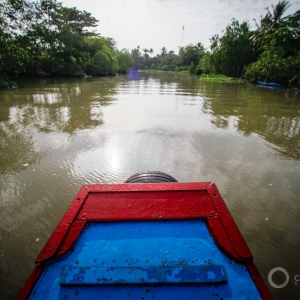Federal Water Tap, April 20: More Democrats Support Water Bill Aid
The Rundown
Support among Democrats in Congress grows for emergency water bill assistance due to the coronavirus pandemic. The EPA agrees to a timeline for updating national drinking water standards for microbes and disinfection byproducts. California Democrats call for state and federal cooperation over water resources. The National Parks Service greenlights DC Water’s sewage overflow tunnel along the Potomac River. NASA requests research proposals that use satellite data to study environmental change due to the coronavirus pandemic. The Air Force says it needs more studies before PFAS cleanup at a former base in northern Michigan can begin. The Army Corps revives a controversial flood-control project in Mississippi. And lastly, NASA seeks a private company to commercialize its technology that recycles urine into a “fortified drink.”
“Given the seriousness of this challenge, we urge you to take advantage of what is likely the last opportunity to work with the state and seek a solution to this impasse.” — Letter to David Bernhardt, the Interior secretary, signed by Sen. Dianne Feinstein and four Democrats representing California’s Central Valley. The Trump administration is at odds with California’s Democratic leadership over the operation of state and federal water supply projects. The Trump administration proposes pumping as much water as possible to cities and Central Valley farms south of the Sacramento-San Joaquin delta, an ecosystem that cannot sustain all the demands for water that are placed upon it.
By the Numbers
$2 million: Funding available for satellite-based studies of environmental, economic, and societal change related to the coronavirus pandemic. (NASA)
2024: Year that cleanup of PFAS contamination could begin at the former Wurtsmith Air Force Base, in Oscoda, Michigan. The Air Force says that $13.5 million in federal funding will be used to for more site evaluations, but local residents, after witnessing the military study the problem for a decade, want quicker action on cleanup. (MLive)
In context: Fear and Fury in Michigan Town Where Air Force Contaminated Water
News Briefs
Water Aid during Pandemic
The number of supporters in Congress for utility assistance in the next Covid-19 package continues to grow.
One hundred ten Democratic members of the House and Senate sent a letter to congressional leaders, requesting financial aid during the coronavirus pandemic to utilities and the people they serve.
The letter asks for emergency funding for utilities — including water, electric, internet, and phone service — and their customers. It requests a moratorium on the disconnection of utility services for nonpayment of bills during the national emergency and for a six-month grace period after the emergency is lifted.
What is new in the letter is the stipulation that all late fees and bill payments should be forgiven for “low-wealth families” through the end of the grace period, and that Congress should provide funding for that.
A shutoff moratorium was already mentioned in an April 7 letter that 80 House Democrats signed. States like California, Michigan, and New Hampshire and hundreds of utilities have issued their own suspensions of shutoffs and late fees. But the House Democrats want blanket coverage.
“For all of us to get through this together we need to have a national policy with clear standards that utilities can follow, and ensure that no family is left behind in the patchwork of policies,” they wrote.
In context: Water Shutoffs Are Suspended, But the Bills Will Still Be Due
EPA Agrees to Timeline for Assessing Drinking Water Contaminants
In a draft settlement of a lawsuit brought by three environmental groups, the U.S. Environmental Protection Agency agreed to timelines for assessing nearly a dozen drinking water contaminants, primarily microbial pathogens and disinfection byproducts.
The lawsuit alleged that the agency did not follow the letter of the law and was tardy in risk assessments and reviews that are mandated under the Safe Drinking Water Act.
By July 2024, the EPA will update regulations for tetrachloroethylene, trichloroethylene, Cryptosporidium, haloacetic acids, Giardia, Legionella, total trihalomethanes, viruses, and others. Following a risk assessment, the agency will determine whether to update regulations for chromium.
The EPA will also publish, in a timely manner, lists of unregulated contaminants that it will consider for future regulation.
Studies and Reports
Potomac Stormwater Tunnel
The National Park Service gave the green light for a tunnel along the Potomac River that will store sewage overflows. The tunnel will prevent excess sewage and stormwater from entering the river during heavy rains.
The tunnel is a project of DC Water, the utility that serves Washington, D.C. The utility operates a similar sewage-storage structure along the Anacostia River.
DC Water needed federal approval because the tunnel will traverse land managed by the National Parks Service, including Rock Creek Park and the National Mall. The utility estimates that the project will reduce the volume of sewage overflows into the river by 93 percent.
New Review for Vetoed Mississippi Flood-Control Project
The U.S. Army Corps of Engineers says that it will assess a revised plan to pump water from a backwater area in Mississippi in order to control floods.
An earlier design of the Yazoo Area Pump Project was vetoed in 2008 by the George W. Bush administration because of the damage it would do to wetlands. But now the Army Corps thinks it can strike a better balance with more limited pumping, and it is proposing to revive the contentious project. The impetus for the revival was high waters last year that flooded 500,000 acres in the area.
The Corps will be updating an environmental review that was concluded in 2007. There are no public scoping meetings planned, but comments can be sent to YazooBackwater@usace.army.mil. A draft impact statement is scheduled for October 2020.
On the Radar
Financial Advisory Group’s Charter Renewed
The EPA renewed for two years the charter of the Environmental Financial Advisory Board, the group of outside experts that advises the agency on matters relating to financing water, air, and land protection programs.
North Dakota Natural Gas Pipeline
The Federal Energy Regulatory Commission published the timeline for its environmental assessment of the North Bakken Expansion Project, which will connect natural gas processing facilities with distribution lines through 92 miles of pipeline.
The assessment is due on September 4, 2020.
Urine-Ade, the Thirst Quencher
Engineers at NASA Ames Research Center are minimalists by trade. Space exploration requires ruthlessly efficient processes. Turning human pee, for instance, into a “fortified drink.”
NASA Ames has the technology, a urine-recycling contraption designed for space life. Now, the agency is looking for someone else to license the technology to commercialize, manufacture, and market.
According to the notice, the technology is a variation of membrane treatment:
“It provides a contaminant treatment pouch, referred to as a urine cell or contaminant cell that converts urine or another liquid containing contaminants into a fortified drink, engineered to meet human hydration, electrolyte and caloric requirements.”
No word whether those engineers had previously consulted with the producers of WaterWorld.
Federal Water Tap is a weekly digest spotting trends in U.S. government water policy. To get more water news, follow Circle of Blue on Twitter and sign up for our newsletter.
Brett writes about agriculture, energy, infrastructure, and the politics and economics of water in the United States. He also writes the Federal Water Tap, Circle of Blue’s weekly digest of U.S. government water news. He is the winner of two Society of Environmental Journalists reporting awards, one of the top honors in American environmental journalism: first place for explanatory reporting for a series on septic system pollution in the United States(2016) and third place for beat reporting in a small market (2014). He received the Sierra Club’s Distinguished Service Award in 2018. Brett lives in Seattle, where he hikes the mountains and bakes pies. Contact Brett Walton





Leave a Reply
Want to join the discussion?Feel free to contribute!